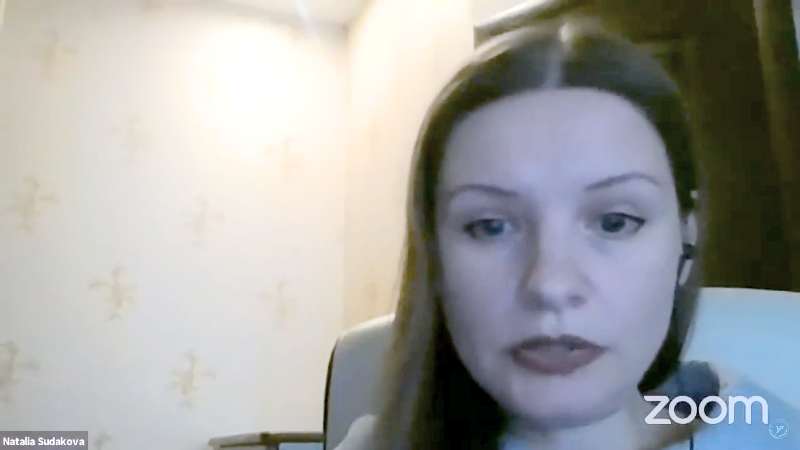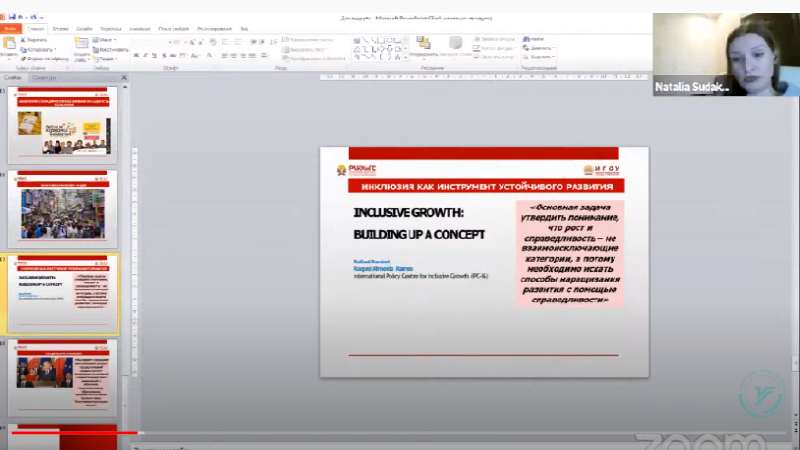The UNESCO Department of the IGSU RANEPA took part in the V International Conference “Russia and the West: Topical Issues of Sociology, Political Science and International Relations in the Era of Globalization”
Natalia Sudakova, Professor of the UNESCO Department, IGSU RANHIGS, made a speech on October 7 at the plenary session of the V International Conference “Russia and the West: Topical Issues of Sociology, Political Science and International Relations in the Era of Globalization”.
The plenary session was attended by Professor of the UNESCO Department of IGSU RANEPA, Doctor of Philosophy Natalia Evgenievna Sudakova – an expert in the field of inclusive transformations. She gave a presentation on the topic “Inclusion in the perspective of international politics”, outlining the global problems provoked by the COVID-19 pandemic and requiring immediate solutions. In her speech, the expert expressed her position on the most pressing issues related to the growing instability and inequality in the global format of interaction, requiring a rethinking of the strategy of inclusive policies aimed at sustainable growth.
The situation in which the whole world finds itself today requires the international community to pay special attention to UNESCO’s calls to help restore the educational process around the world, since the negative consequences of its complete stop are obvious. Increasing inequality leads to political and economic crises. Another significant challenge identified by UNESCO in the context of growing inequality is a complete reset of migration policy. This is facilitated by the closure of borders, the transformation of the labor market, and the transition to models of remote interaction. Changes in the trajectory of migration flows, the consequences of which we have yet to feel and appreciate, are holding back the growth and development of communities, exacerbating the economic crisis across the planet.
Many states of the world today lead the most closed way of life, choosing their own models for overcoming the consequences of the pandemic, where inclusive principles of cooperation and solidarity are literally tested for viability. The problem of social isolation of a person discriminated against on the basis of race, gender, social status, ethnic origin, religious belief and disability is again becoming one of the most acute.




